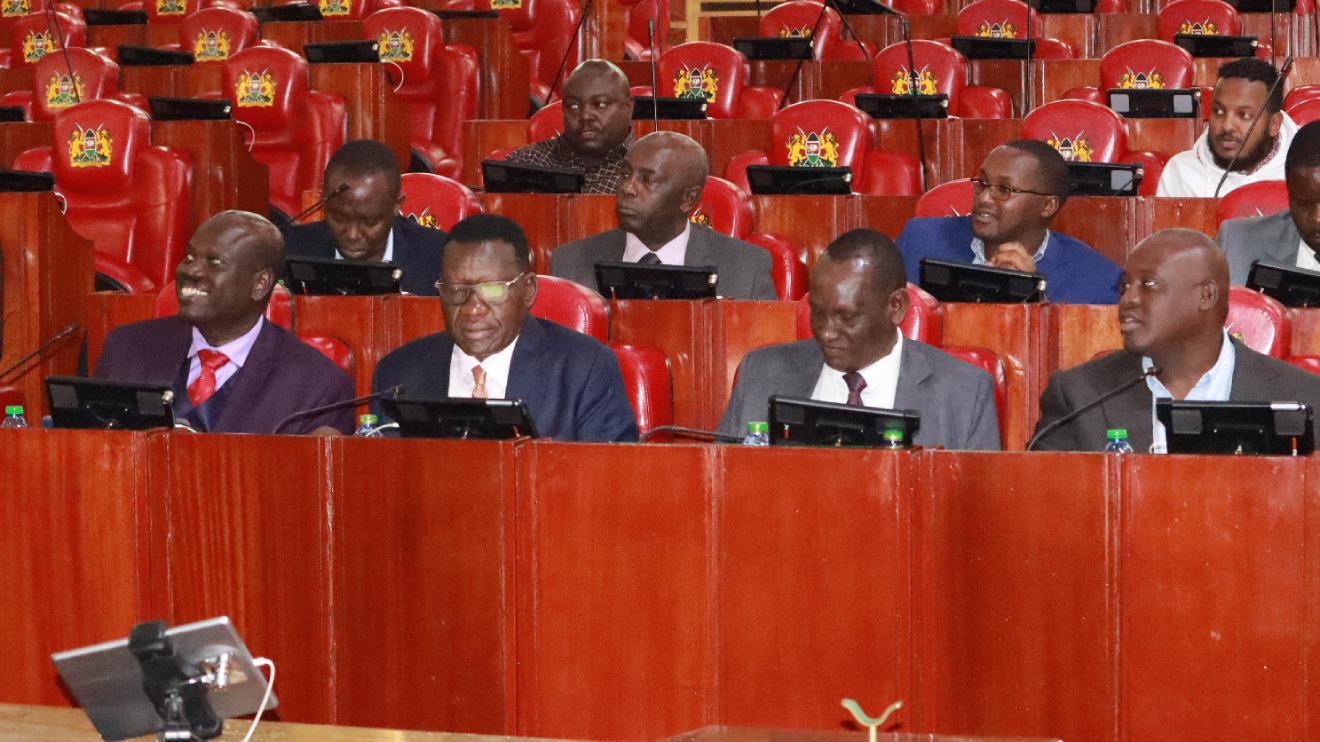Energy and Petroleum Cabinet Secretary Davis Chirchir has delivered sobering news to Kenyans, indicating that they should prepare for a significant surge in fuel prices in the coming months.
This revelation, shared during Chirchir's appearance before the National Assembly's Departmental Committee on Energy, sheds light on the intricate web of influences driving the escalating fuel costs in the country.
Chirchir, addressing the committee, pointed out two major global factors that are beyond the government's control but are set to exert substantial pressure on fuel prices.
Firstly, he highlighted the critical role of the Organization of the Petroleum Exporting Countries (OPEC), which has taken the decision to curtail global oil production by approximately 3.6 million barrels daily.
This substantial reduction in the global oil supply inevitably impacts both the availability and pricing of this essential commodity.
Read More
Furthermore, Chirchir cited the prolonged conflict between Russia and Ukraine as another potent factor contributing to the anticipated spike in fuel costs.
The geopolitical tensions surrounding this conflict have had repercussions on the international oil market, thereby influencing prices.
Chirchir pointed out that the impending surge in fuel prices is largely a consequence of global factors beyond the government's control.
Among these factors, he highlighted the Organization of the Petroleum Exporting Countries (OPEC) decision to significantly reduce its global oil production, an action that has dire implications for the availability and pricing of the vital commodity.
"We're dealing with several governments as suppliers of these products. Yesterday, we launched the EV Mobility Regulations, and we made a very comprehensive presentation on the cost of fuel today and going forward, and we're likely to even be going to harder times because these are Platt prices from OPEC, and there's nothing much we can do about them," Chirchir stated unequivocally.
"There's been some 3.6 million barrels cut on a daily basis...that's about 3.6 per cent-4 per cent (of global fuel consumption)...it's just unfortunate that we don't have our own product as a country."
In addition to these global factors, Chirchir pointed out a domestic policy change that will further exacerbate the situation.
The Kenyan government, under the Kenya Kwanza administration, has chosen to eliminate fuel subsidies that were previously in place, a decision influenced by an irreversible commitment to the International Monetary Fund (IMF).
This move has led to a direct increase in the prices of various petroleum products, contributing to the mounting financial burden on consumers.
"The price of kerosene between June and today has gone up by over USD250 per barrel, from a low of 600 to a high of 900. What we've previously done when we ran the subsidy program is we took this away from Kenyans and they did not see the increase, and we paid on the back of the Treasury balance sheet," Chirchir explained.
He further detailed the government's efforts to mitigate the impact of rising fuel prices, such as the stabilization fund, which raises revenue from diesel and premium motor spirit (PMS) sales.
“We have the stabilization fund which raises about Sh5.40 for each diesel and PMS, and which only collects about Sh2.5 billion. The increase this time on the basis of the landed international cost prices, was up by about Sh8.7 billion. I wish it was still possible to subsidise, but we had some covenants with IMF. But suddenly the pain is heavy, it is not going to be easy," the CS said.
However, the fund falls significantly short of covering the additional costs incurred due to the escalated international cost prices.
Chirchir highlighted ongoing negotiations with international rail companies aimed at reducing freight and premium costs, a measure intended to alleviate the financial strain resulting from rising fuel prices.
These stark revelations by CS Chirchir echoed his counterpart, Moses Kuria, who holds the position of Investments, Trade, and Industry Cabinet Secretary.
Kuria had earlier urged the public to brace for even higher fuel prices in the months ahead, predicting a monthly rise of at least Sh10 until February of the following year due to the continuous upward trajectory of global crude oil prices.
As Kenyans confront the impending surge in fuel prices, it becomes evident that a collection of global factors, including OPEC's production cuts, geopolitical conflicts, and government decisions, is shaping the nation's energy landscape.
In this intricate interplay of forces, Kenyan consumers must prepare for a challenging period marked by mounting fuel costs.



-1731675695.jpg)




-1731665904.jpg)
